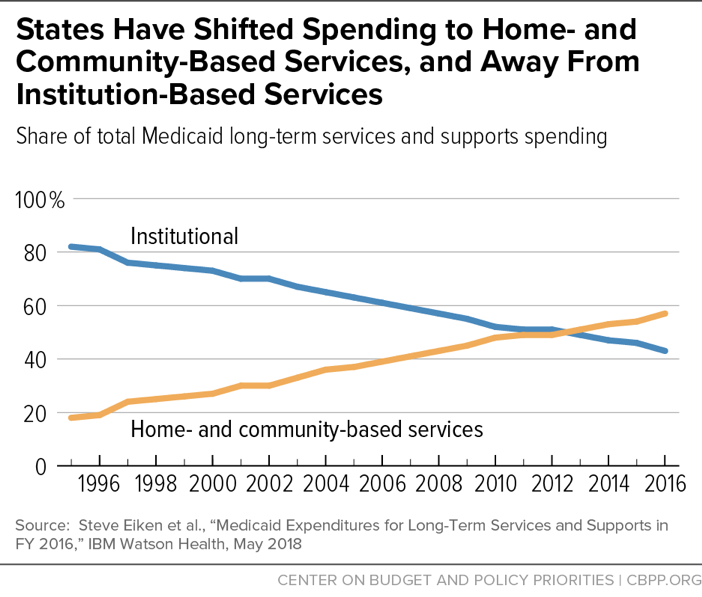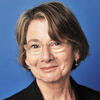BEYOND THE NUMBERS
Protections for Married Couples Receiving Medicaid Home- and Community-Based Services End on December 31 Without Congressional Action
Some seniors and people with disabilities receiving home- and community-based services (HCBS) could lose their Medicaid eligibility and have to go into nursing homes to get needed care if Congress adjourns without extending “spousal impoverishment” protections that are set to expire on December 31.
Before 1988, married couples often faced significant hardship when one spouse needed care in a nursing home and the other spouse remained at home. The spouse at home could be left without enough funds to meet her living expenses because a large share of the couple’s income and assets had to go towards the costs of nursing home care before Medicaid kicked in to help pay.
Spousal impoverishment protections that policymakers enacted in 1988 changed Medicaid eligibility for married couples to let the spouse at home keep a share of the couple’s income and assets to meet her needs. States can also apply spousal impoverishment protections to some married couples when one or both spouses receive HCBS. This state option applies to one of the multiple pathways that states have to provide Medicaid HCBS to seniors and people with disabilities.
States have made dramatic progress in shifting the delivery of long-term services and supports (LTSS) out of institutions and into the community, addressing what had been an institutional bias in Medicaid. The share of Medicaid spending on LTSS spending for HCBS rose from 18 percent in 1995 to 57 percent in 2016 (see chart). The Affordable Care Act (ACA) supported the shift to HCBS by requiring states to extend spousal impoverishment protections to all married couples receiving HCBS, regardless of their eligibility pathway, for a five-year period that expires on December 31, 2018. The ACA also created new options for states to provide HCBS.
If policymakers don’t extend the ACA’s expansion of spousal impoverishment protections, some married couples could lose Medicaid eligibility because states would have to count their income and assets that were protected under the impoverishment rules, possibly making them ineligible for coverage. Most would still be eligible if they entered a nursing home; some would likely do that, but others might forgo needed care in order to stay in the community, putting their health and financial well-being at risk.
The Centers for Medicare and Medicaid Services (CMS) notified states in early November that, if Congress fails to extend the protections, they must redetermine Medicaid eligibility for couples receiving HCBS and stop applying the rules to couples who apply for Medicaid coverage of HCBS in January. States can still use the option to apply the impoverishment protections to those who are eligible under the specific pathway in the original 1988 law. Most states would likely take up the option for that group, according to a Kaiser Family Foundation survey, but many seniors and people with disabilities receive HCBS under other Medicaid authorities, including the ACA’s new options.
The CMS guidance says that states could apply for a federal section 1115 waiver to extend the spousal impoverishment protections to couples receiving HCBS under these other authorities. But even if states want to extend the protections through a waiver — and it’s unlikely all states would — it would likely take months for states to submit their applications and CMS to approve them. In the meantime, many people would likely lose eligibility and suffer harm.
States need to start re-determining married couples’ eligibility in January, so Congress must extend the spousal impoverishment protections before December 31. Congress should extend the protections for as long as possible before adjourning, but policymakers more optimally would make the ACA provision to equalize treatment of institutional care and HCBS permanent, ensuring continued progress on shifting care from institutions to the community.

